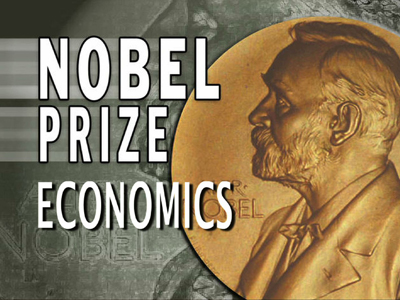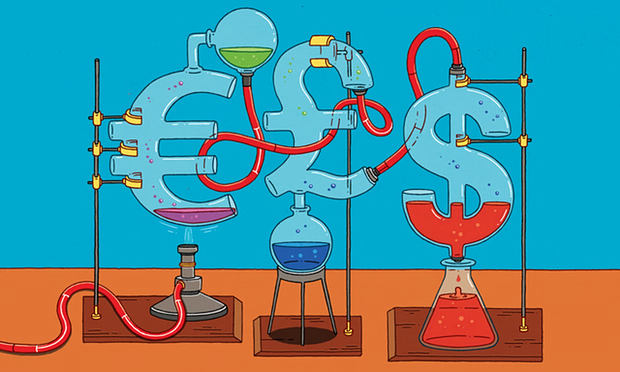- Details
- Written by: Kamran Mofid
- Hits: 6677

There is no Nobel Prize in Economics: Then, let us have one
A New Nobel Prize: Economics in the Interest of the Common Good
“The single goal of scientific research should be the discovery of new knowledge, either through correcting past errors or through the discovery of previously unknown truths. Truth, however, does not appear to be a primary concern for the Prize committee in economics… the actual goal of the Prize committee has been to promote skilful research according to the mathematical fashion, whatever its validity.”-Nikolay Gertchev
“A Nobel prize in economics implies that the human world operates much like the physical world: that it can be described and understood in neutral terms, and that it lends itself to modelling, like chemical reactions or the movement of the stars. It creates the impression that economists are not in the business of constructing inherently imperfect theories, but of discovering timeless truths.”-Joris Luyendijk
"The Nobel prizes are awarded to those who have contributed most to the common good in the areas of Physics, Chemistry, Medicine, Literature and Peace." A sixth, for Economics, which is financed by the Swedish Central Bank (Riksbanken), was first awarded in 1969.
Nobel Prizes in Economics to those who have contributed most to the common good: Wow! That is a very tall order!!
"Calling this 'Nobel in Economics' perpetuates the fraud begun in 1969," wrote Christopher L. Simpson in a comment in The New York Times.
"Feeling that the 'science' of economics lacked legitimacy, some Swedish bankers founded this prize and in wholesale commission of fraud named it after Alfred Nobel (who has no connection with economics whatsoever) in order to gain for it the prestige that Nobel in his will, chose to reserve for physics, chemistry, literature, peace, etc.," he wrote.
- Details
- Written by: Kamran Mofid
- Hits: 4747

“A Nobel prize in economics implies that the human world operates much like the physical world: that it can be described and understood in neutral terms, and that it lends itself to modelling, like chemical reactions or the movement of the stars. It creates the impression that economists are not in the business of constructing inherently imperfect theories, but of discovering timeless truths.”
"The Nobel prizes are awarded to those who have contributed most to the common good in the areas of Physics, Chemistry, Medicine, Literature and Peace." A sixth, for Economics, which is financed by the Swedish Central Bank (Riksbanken), was first awarded in 1969.
However, as noted by many observers with an eye for justice and truth -including many “Recovered and Recovering” economists, neoclassical economics - economics as taught and practised today - “is a mask for power and greed, a construct designed to justify the status quo. Its claim to serve the common good is specious, and its claim to scientific status is fraudulent. The latter is sought mainly by excessive mathematical formalism to the neglect of concrete facts and real values. The mathematical formalism is in imitation of nineteenth century physics (economics viewed as the mechanics of utility and self-interest), but without any empirical basis remotely comparable to physics.”
- Details
- Written by: Kamran Mofid
- Hits: 5050

“A Nobel prize in economics implies that the human world operates much like the physical world: that it can be described and understood in neutral terms, and that it lends itself to modelling, like chemical reactions or the movement of the stars. It creates the impression that economists are not in the business of constructing inherently imperfect theories, but of discovering timeless truths.”-Photo: Jasper Rietman
In May 2015 at the Annual General Meeting of the World Congress of Faiths, which was held at London School of Economics, I delivered a keynote speech on “The Value of Values to Build a World for the Common Good” I discussed different issues and when in particular I tried as a “Recovered” economist, who has seen the light and hopefully is now wiser than before, shed some light on what economics was and what it has become: Economics, Globalisation and the Common Good: A Lecture at London School of Economics
That was then. And now : The Big, Exciting News of the week- just in case you are not aware is that the winner of the Sveriges Riksbank prize in economic science in memory of Alfred Nobel, as it is officially called, is going to be announced on Monday 12 October 2015.
After eight years in which many of the pillars of economic theory have been swept away by a financial tsunami that went largely unpredicted by the majority of practitioners and teachers of the “dismal science”, it may be hard to believe anyone deserves to be awarded a Nobel prize in the subject.
- Remembering a Heroine Called Nurse Edith Cavell
- World Mental Health Day 2015: Dignity in mental health
- And yet another mass murder in “The Land of the Free and the Home of the Brave”: Why Americans are killing each other
- An Open Letter to University Leaders: Students’ Mental and Emotional Wellbeing Must Be Our Priority
- Rising numbers of stressed students seek help
